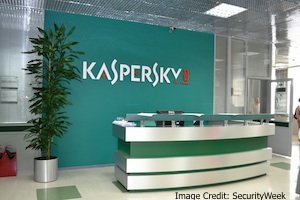Kaspersky Lab, the only security vendor to fight a patent lawsuit filed by IPAT (Information Protection and Authentication of Texas), officially announced last week that they were victorious following a three-year court battle. IPAT filed a patent suit in 2009, targeting nearly every security vendor in the industry. The lawsuit claimed violation of patents 5,311,591 and 5,412,717, which were issued almost a year apart to the day in 1994 and 1995.
 Each patent covers what is essentially sandboxing: “…method and apparatus are disclosed including a system monitor which limits the ability of a program about to be executed to the use of predefined resources (e.g., data files, disk writing capabilities, etc.). The system monitor processes a data structure including a set of authorities defining that which a program is permitted to do and/or that which the program is precluded from doing…”
Each patent covers what is essentially sandboxing: “…method and apparatus are disclosed including a system monitor which limits the ability of a program about to be executed to the use of predefined resources (e.g., data files, disk writing capabilities, etc.). The system monitor processes a data structure including a set of authorities defining that which a program is permitted to do and/or that which the program is precluded from doing…”
Kaspersky Lab was sued, along with Microsoft, AVG, Check Point, Comodo, ESET, F-Secure, Symantec, McAfee, PC Tools, Sophos, Trend Micro, Webroot, Sunbelt Software (now owned by GFI), and several others. To make things worse for those named in the lawsuit, it was filed in the Eastern District of Texas, a haven for patent trolls looking to make a quick buck via legal extortion.
The lawsuit alleged that they were infringing on IPAT’s patents by, “…making, using, providing, offering to sell, and selling (directly or through intermediaries), in this district [Eastern Texas] and elsewhere in the United States, hardware and/or software for protecting and/or authenticating information.”
Over the years, while Kaspersky held its ground, other vendors named in the lawsuit moved to settle, agreeing to pay licensing fees to the patent aggregator RPX, which stepped in and promised relief from IPAT’s lawsuit. Kaspersky refused to bow before IPAT, the company said, and refused any and all of the settlement proposals and license agreements they offered.
“This is a major achievement. Back in 2008 I said to our lawyers that there would be no backing down – we would go to court and fight it out with them. It was our first experience of a patent legal battle and we decided to stand our ground and stand up for our rights. Now we are mulling over ideas to strike back at the trolls. Not only are they extorting money, more importantly they are endangering technological progress,” Kaspersky Lab co-founder and CEO, Eugene Kaspersky commented.
News of their victory in court came out around the time that the security firm celebrated 15 years of operation. Since they started in 1997, the Russian firm has grown from 20 people, to a staff of more than 2,400. Many pundits will recall that the first major virus outbreak that Kaspersky had to contend with was Melissa, which circulated in 1999, followed by 2003’s Slammer Worm, among others.
“Fifteen years in the same business is a long time. But believe it or not, I still love it. I love our team, and the work we do,” CEO Kaspersky said.
Related Reading: Kaspersky Lab 2011 Revenue Tops $612 Million, But No IPO in Sight












